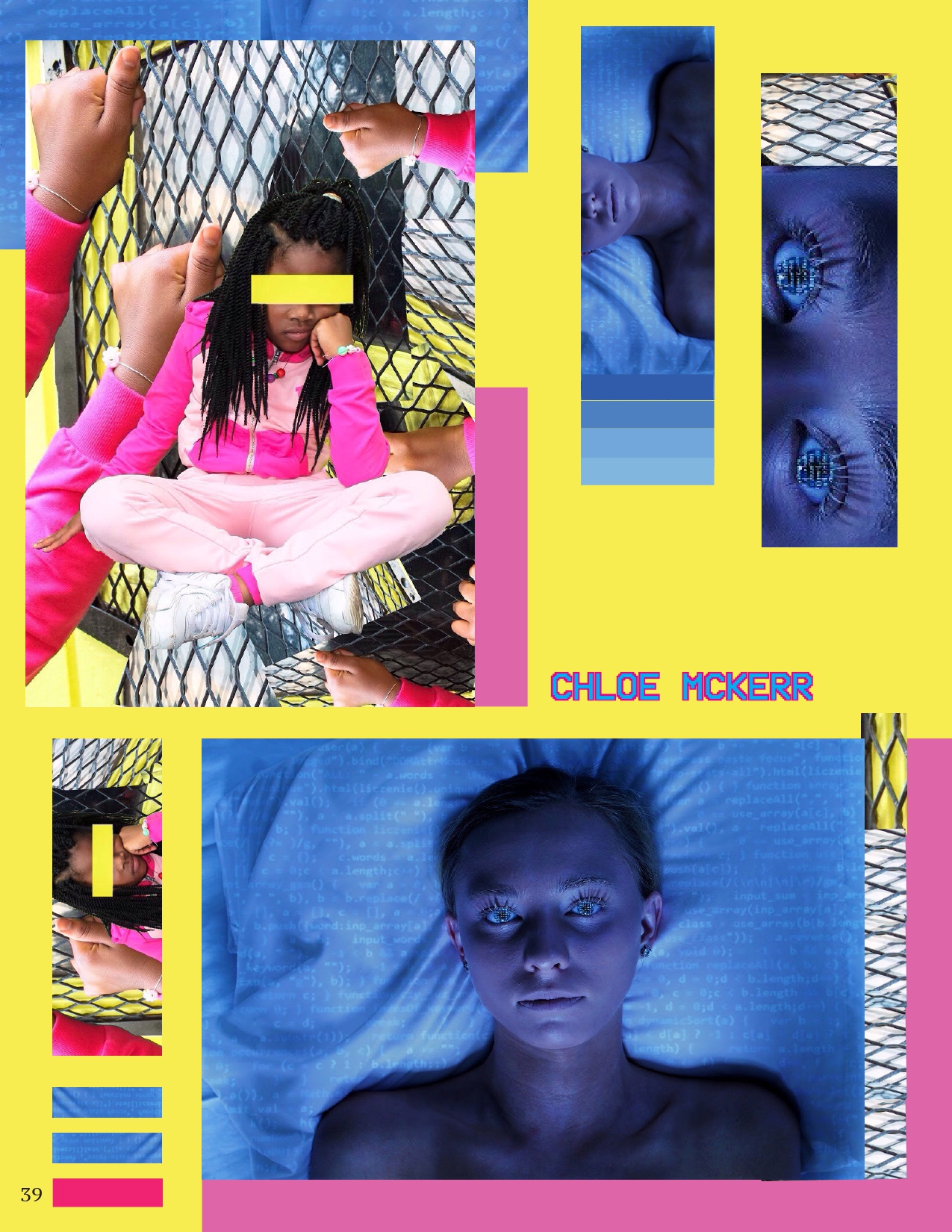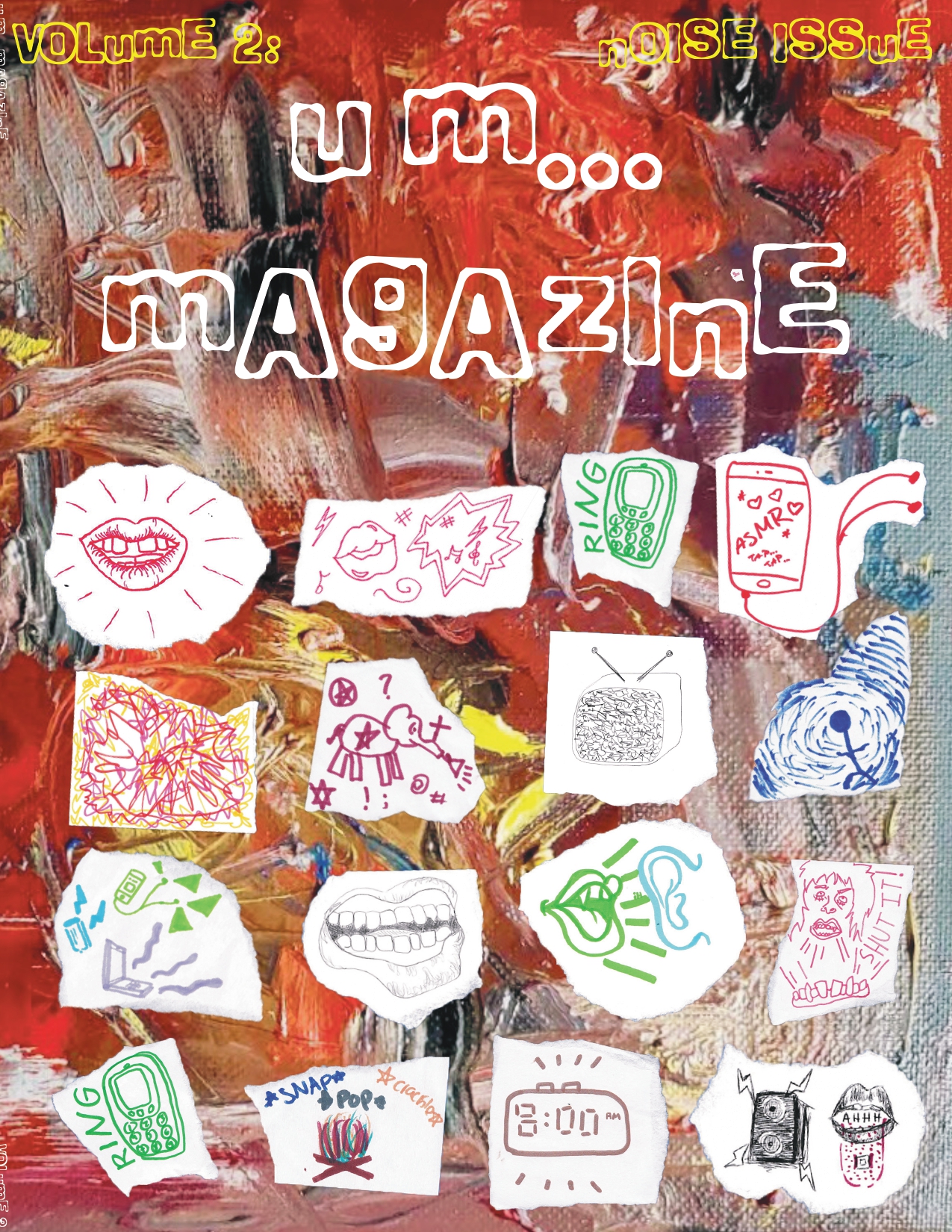By Donna Mo
Um... Magazine editor-in-chief Frances Woo attends the magazine launch with general member Jessica Salcido. Photo by Frances Woo.
Second-year UC Santa Barbara student Frances Woo recently launched Um… Magazine, an online and print arts publication that aims to give marginalized communities a platform to showcase their art, writing, photography, and music.
Woo, a sociology major, is the founder and the editor-in-chief of Um… Magazine, which issued its first print edition this past spring and will do so every quarter.
The magazine prioritizes publishing work by women, people of color, members of the LGBTQ+ communities, disabled people, and more, from both on and off campus.
In a recent interview, Woo discussed the creation of the magazine and her plans for its future.
Q. When did you first get the idea to create this magazine?
Um... Magazine showcases Chloe Mckerr's photography.
I was in the Spectrum [literary magazine] class freshman year and we were sifting through selections and we were looking at two different pieces. We were like, “They're both really good. I don't know which one we want to pick.” One of them was written by a girl and one of them was written by a guy. Our teacher said, "Well, you should think about the fact that she is a woman, and that women get published less than men. So if you think they are equally good, you should prioritize publishing women.” And I was like, “You’re right.”
Also, I didn't really feel like I fit in in high school. My high school was really white. I started using clothes and fashion to embrace my individuality and that definitely helped a lot with me making my own place in a place that didn't have a spot for me. That's also what I want people to do with the magazine – use art to find strength in who you are, because art is so personal. No one can make the same thing that you can.
Q. Why did you pick the name Um... Magazine?
Um… Every time someone asks me that, I always start with “um.” The title refers to the fact that because marginalized voices have been excluded from mainstream media, we feel invalidated in the way that we process our emotions and experiences. We feel that we need to censor ourselves because we don't believe in our own experiences because people invalidated them, so we always say stuff like, "Um, I don't know" to kind of not really say what we actually want to say because we know it's going to cause problems.
Literally the other day, this man walked into my house. He was talking to my friend. And this was a white man talking to a non-white man. He was looking at the magazine and he looks at my friend and goes, "So why do you think you're marginalized?" My friend was just like, "Um." And its the fact that he says, "Why do you think?" as if people of color being marginalized isn’t a fact of life.
Q. The theme of your most recently published magazine issue is noise. Why did you decide to pick that as the theme?
Um... Magazine published its second volume late May, focusing on the theme of noise.
We're always surrounded by physical noise, but for me personally, I focused on a lot more mental noise, like societal noise. What I mean by that is the voice in my head always putting me down. And just coming to terms with the fact that that noise either comes from mental issues or from instilled values from society about what I should look like or what I should be doing, how that messes with my head a little bit, how I deal with that and just trying to get people to look at that as inspiration and to realize that all these thoughts are going through all our heads.
Q. Going forward, where do you see your magazine in the future?
I definitely want to keep it going after I leave [UCSB]. I was talking to someone about maybe making it a class, because it's so easy for student groups to die. I also want it to not just be a publication. I want the people working on the publication to be a diverse group of people who can relate to each other. There are so many organizations on campuses that I’m interested in joining, like for example art, but there are not many people of color. And when you're doing art, your identity is such a key thing and it's so intertwined with how you express yourself through art and writing. If someone else is from a marginalized community, they're going to listen because they understand.
Donna Mo is a fourth-year Communication major and Theater minor. She is a Web and Social Media Intern with the Division of Humanities and Fine Arts.




